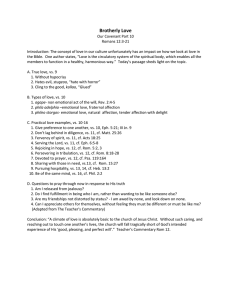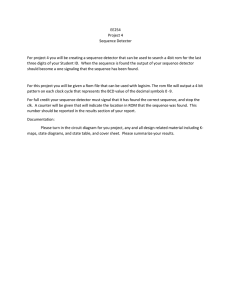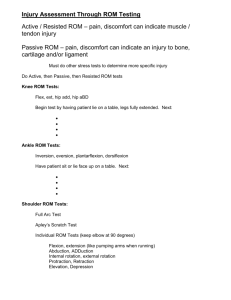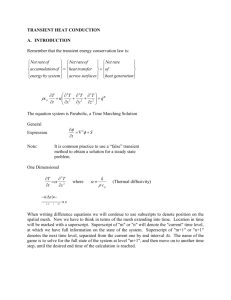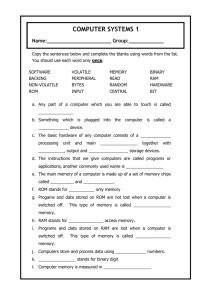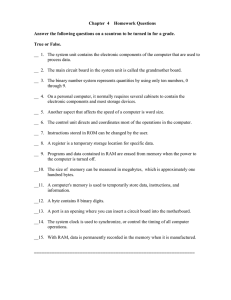MINUTE of the SCHOOL MEETING February 2014
advertisement
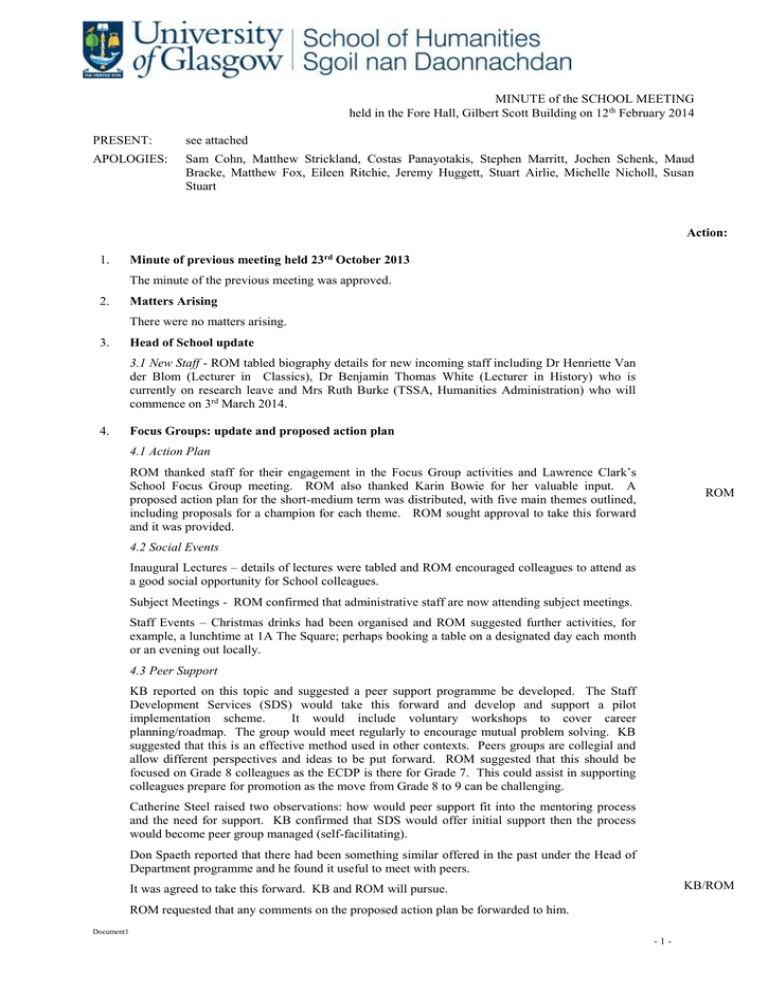
MINUTE of the SCHOOL MEETING held in the Fore Hall, Gilbert Scott Building on 12 th February 2014 PRESENT: see attached APOLOGIES: Sam Cohn, Matthew Strickland, Costas Panayotakis, Stephen Marritt, Jochen Schenk, Maud Bracke, Matthew Fox, Eileen Ritchie, Jeremy Huggett, Stuart Airlie, Michelle Nicholl, Susan Stuart Action: 1. Minute of previous meeting held 23rd October 2013 The minute of the previous meeting was approved. 2. Matters Arising There were no matters arising. 3. Head of School update 3.1 New Staff - ROM tabled biography details for new incoming staff including Dr Henriette Van der Blom (Lecturer in Classics), Dr Benjamin Thomas White (Lecturer in History) who is currently on research leave and Mrs Ruth Burke (TSSA, Humanities Administration) who will commence on 3rd March 2014. 4. Focus Groups: update and proposed action plan 4.1 Action Plan ROM thanked staff for their engagement in the Focus Group activities and Lawrence Clark’s School Focus Group meeting. ROM also thanked Karin Bowie for her valuable input. A proposed action plan for the short-medium term was distributed, with five main themes outlined, including proposals for a champion for each theme. ROM sought approval to take this forward and it was provided. ROM 4.2 Social Events Inaugural Lectures – details of lectures were tabled and ROM encouraged colleagues to attend as a good social opportunity for School colleagues. Subject Meetings - ROM confirmed that administrative staff are now attending subject meetings. Staff Events – Christmas drinks had been organised and ROM suggested further activities, for example, a lunchtime at 1A The Square; perhaps booking a table on a designated day each month or an evening out locally. 4.3 Peer Support KB reported on this topic and suggested a peer support programme be developed. The Staff Development Services (SDS) would take this forward and develop and support a pilot implementation scheme. It would include voluntary workshops to cover career planning/roadmap. The group would meet regularly to encourage mutual problem solving. KB suggested that this is an effective method used in other contexts. Peers groups are collegial and allow different perspectives and ideas to be put forward. ROM suggested that this should be focused on Grade 8 colleagues as the ECDP is there for Grade 7. This could assist in supporting colleagues prepare for promotion as the move from Grade 8 to 9 can be challenging. Catherine Steel raised two observations: how would peer support fit into the mentoring process and the need for support. KB confirmed that SDS would offer initial support then the process would become peer group managed (self-facilitating). Don Spaeth reported that there had been something similar offered in the past under the Head of Department programme and he found it useful to meet with peers. KB/ROM It was agreed to take this forward. KB and ROM will pursue. ROM requested that any comments on the proposed action plan be forwarded to him. Document1 -1- 4.4 Additional Administrative Staff ROM reported that two additional administrative posts has been agreed and offered thanks to Michael Murray for his efforts. A further two academic posts had also been agreed, with one each in History and Philosophy. 4.5 P&DR – will be discussed in detail under Agenda Item 6. Any further comments on the action plan are to be forwarded to ROM or KB 5. Best Practices in Teaching 5.1 Teaching Practices CL gave a presentation on recent examples of best practices as highlighted in the Annual Monitoring Reports (AMRs). There were three broad categories: (1) technology-related, (2) Study away from the campus and (3) Student-led and peer-assessed activities. The highlights of each category included: Turnitin - prevents plagiarism, reduces administrative burdens and saves students money from printing hard copy essays. Recording - recording and podcasting of lectures, sometimes resulted in a drop in attendance, but is good as a revision tool. Moodle Quizzes - offers interactive facilities and is currently used in Celtic & Gaelic. Another good revision tool. Quizzes are not assessment related. CL reported that Sarah Honeychurch from L&T can assist with transfer of course content from version 1.9 to 2. Talis Aspir - allows the creation of reading lists, details where resources are located and the number of times it has been borrowed. Social Media - heavily used in digital media courses and for the creation of webpages and twitterfalls (provision of live feedback). Had received very good student feedback Study off-site - Archaeology offer an Easter field trip to Wales/Northumbria which addresses graduate attributes elements and also a field school in Perthshire for Level 2 into Junior Honours students. This offers practical training; students work towards their portfolio, it develops interpersonal skills and is good for recruitment and internationalisation. Philosophy organise reading parties for Junior and Senior Honours students where students present papers, occasionally with staff presentations. It is an opportunity to consolidate learning and for getting to know other students. Classics offer a core travel course to Rome/Greece. Students present to their cohort on their trip, and are responsible for planning and costing the trip and retaining a travel log. Visits to Hunterian Museum also offer interaction with artefacts. Student led and peer assessed activities - Classics level 2 portfolios are currently peer assessed. CL reported that Ian Ruffell and Lisa Hau will present at the forthcoming L&T conference in April. CL CL agreed to circulate his slides following the meeting. 5.2 LEAF (Leading Enhancements in Assessment and Feedback). KB advised the group about this cross-University project involving the Universities of Nottingham, Birmingham, Glasgow and Edinburgh which is being piloted in History as they are considering assessment and feedback expansion. A mapping assessment workshop had been held on 3rd February 2014 and some of the topics discussed included: The reciprocal peer critique of essays, for example, in Psychology students prepare an exhibition (special collection) as an alternative to an essay. Production of lesson plans. Book reviews – Stirling University offer this method. Use of Journals – Dundee offer this, although this may be more appropriate for Honours Level. Un-chaired seminars – self-regulated by students, with no tutor. Mock conferences – good for use at Senior Honours level. KB For further information, please contact KB. KB will also circulate her slide. Document1 -2- 6. P&DR Reflections ROM suggested that the whole group split into smaller groups of mixed subject area and consider the following questions in relation to the P&DR process: What worked well? What did not work well and any concerns. How can we within our circle of influence at School level make P&DR more useful, better and meaningful. Group 1 comments: The P&DR form prevents innovation and blue sky thinking. The process could move from an annual process to a longer cycle, for example, a formal review every 3 years with annual meetings. Replace annual P&DR with a general Subject review; encourage colleagues to work collectively/School could present a united form. Consider work that cannot be measured. Group 2 comments: Depends on whether the reviewer is sympathetic. Too short term, inhibiting, not strategic. No follow-up afterwards. Colleagues do not understand the process. Clarity required about grade assessment in relation to JD and expectations. Group 3 comments: Lack of criteria/performance indicators for grade assessment, which detracts from positive aspects. A lack of performance issues could be dealt with via other processes, which would leave the focus on development. Development plans are lost and perhaps the School could help here. Take ownership of issues, perhaps offer P&DR sessions for staff within the School. Link to Strategic Planning of School and ensure that colleagues know that they can contribute to these plans. Negative feelings associated with one individual (reviewer) making a judgement on another person (reviewee). Take a broader approach with regard to internationalisation and KE, rather than expecting every individual to have objectives in all specified areas. Grading creates a hostile process and staff may feel they are protecting themselves from criticism. ROM would produce a brief report and pass to Human Resources. 7. AOB There was no other business. ROM thanked all colleagues for attending. Document1 -3-
